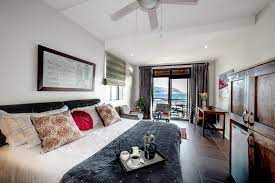WHY IS MOBILE VENDING SUCH A POPULAR CHOICE NOW?




The basic premise behind mobile vending is that you take your business on the road with you, going to where the people and likely consumers are. Sport events, beaches, flea-markets – these are all popular venues, especially when considering the types of products franchisor’s sell.There’s the summer refreshers, such as frothy juices and flavored ice; the winter warmers, such as pancakes and coffee;and, of course, the all year rounders, such as hot dogs, chicken, pies, french fries and even pizza. Most of these tasty treats are combined with unique sauces to tantalize the taste buds. It doesn’t stop there, however, other products include traditional meals such as Pap ‘n Vleis, or even toasted sandwiches and salads, which enable vendors to widen their scope to the city areas, where business folk may pass their stalls during lunchtime.
As a potential operator, there is a huge variety of rewarding mobile businesses – service or product-oriented – to choose from. You can set up just about anything from an ice cream cart to a car wash, landscaping or vehicle repair service. Container – based businesses are also a growing sector, especially in our informal settlements. Old shipping containers are used to house small businesses – anything from hairdressers to cellphone shops. They’re cheap and sturdy, though not as mobile as the carts mentioned above. While there’s nothing new about operating from a kiosk or cart, those available today can be sophisticated as you want and can come fully kitted with the storage and equipment needed to run just about any type of business.
FRANCHISING OPTION.
Many franchisor’s today sell a combination of vending options, to enable the franchisee to earn profits both winter and summer, as well as to offer a wider variety of products. This is why fast food is such a hit as a mobile vending opportunity – the product is in demand and the meals sold are easy to prepare on the move. One of the key aspects to mobile vending is, of course, the customized trailer. Trailers vary in size, depending on the type of business, but most are made from lightweight, but durable materials, to ensure that they are easy to hook up to a car and take on the road. A few companies are concentrating on the design and manufacturing of these customized trailers and caravans for the mobile vending industry. They assist new and established franchises and businesses to enter this market.
WHAT TO LOOK OUT FOR?
If you’re interested in mobile vending it is very important that you look at the trailer’s technical specifications – i.e. whether it is equipped to serve the food you will be selling. For example, do you need a stove, icebox, cooler, generator, fridge, microwave, plug points, grill or storage space? Another key aspect to consider is branding and signage. Branding is very important as it will draw the crowds and create product awareness. Mobile vending is a low -investment option for those looking to enter the fast food market. Many franchisors request a once-off investment payment only, covering the purchase of the trailer, initial stock, use of the brand name, training etc, without expecting any royalties. It’s a cash business, as the money you make goes directly into your pocket. You don’t need office space, employees or have hefty expenses, that would raise the running costs of the business.
WHY GO MOBILE?
Consumers who are looking for convenience and on-site service are your target market. Time-poor consumers opt to purchase from vendors near their workplace, public transport or on their route to or from work, and will even pay a premium for this convenience. You can also target prime consumer locations such as universities, schools, hospitals, parks and trade shows.
IS THIS FOR YOU?
If you’re looking for a full-time operation that offers flexibility, or a part-time venture, mobile vending may just be right for you. Bear in mind that your income is directly dependent on the amount of hours you work. If you don’t go on the road, you won’t make any sales. This opportunity is low risk, affordable and fun!!!
FOOD TRAILER BUSINESS BOOM
For the person who wants to open a restaurant, the brick and mortar issue can make it an impossible dream, with property and rentals being so expensive and risky. For many years, we have seen food trailers that park on street corners, in events grounds and parking lots as well as business parks. These business people run low overhead operations that are less expensive than rent and easily moved where the revenue will be best. It is like embracing a new food culture. The creativity and personal style of cuisine and the design of these rolling restaurants is a lifestyle which appeals to many a family.Some of these are brightly painted to match the food they’re selling. Investing in one of these little mobile restaurants would present a multitude of opportunities.
What may be a great venue this year fade in time but now you are not stuck with rent and overheads. Pack up and move to the next venue and if this fades down the line there’s the venue somewhere else. People willing to work late hours can profit from the nightclubs too. A well-planned coffee trailer can reap many profits through morning peak hour business. The start-up investment for a trailer is around R25 000. It is possible to do it for less. Then you need to get proper licenses and permits where required. Look for auctions where you can find great bargains on catering equipment. Keep it as simple as possible – simple menu and manageable productivity and profits.
Mobile food vending offers everything from hot-dogs, burgers, chicken, Chinese, Thai, Mediterranean as well as coffee-on-the-go from a trailer to a fully equipped van. What about more variety of wraps style mobile stalls, for people who eat while they are driving, mobile curry stalls, healthy alternatives, organic variety, salads, Mediterranean style kebabs, soups and ice cream parlor mobile stalls? What about offering decent espresso and a selection of quality pastries, in the mobile market? The options are endless, and there are more than enough experts who can tailor design and manufacture mobile trailer units. Don’t wait for the mega trends from overseas to dominate the market. Follow through on your own ideas and meet the needs of the eating population.
Where to start? Well, like everything else, it starts with a proper plan. The bigger the outlay the more detailed the business plan should be. Rather ask a professional consultant to assist.
STARTING YOUR MOBILE FOOD BUSINESS
Many people dream of a work style that gives them independence, enjoyment and, at the same time, a decent income. But it still takes effort, careful planning and diligence. A few things to ponder in your planning:-
- What are you selling? (ice cream, candy floss, burgers etc).
- Develop a menu.
- Who is your target market? (general public or business, trading times etc).
- Who will operate the stand?
- Due diligence and evaluate various venues/locations.
- Select the menu (seasonal or general).
- Design the correct trailer and research ides.
- Cooking, serving and storage space requirements?
- What catering equipment will you require?
- Source your regular and reliable suppliers?
- Enquire if you require licenses or permits?.
- Make sure you are costing correctly.
- How much capital do you require before turning a sustainable profit?.
- Do a dummy run.
- Create a operations procedure.
- Make sure you comply to Health & Safety regulations.
- Brand your trailer well.
- Let the community know of your location.
- Will you require seating?.
- Will you require insurance?.
With all this information you should be ready to roll.
GET EXPERT HELP WITH A PROFESSIONAL BUSINESS PLAN – 084 583 3143 or email: money@global.co.za
WHY IS MOBILE VENDING SUCH A POPULAR CHOICE NOW? Read More »













